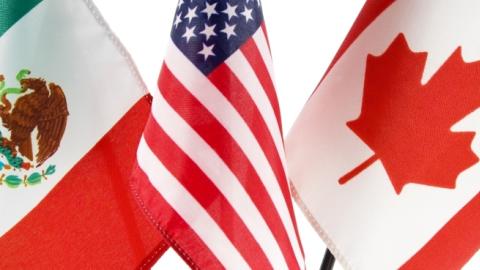NDP leader Thomas Mulcair wants to abolish it. Liberal leader Justin Trudeau unfriended it. Prime Minister Stephen Harper would like to avoid the subject. But last week the Canadian Senate proved that it can make a valuable contribution to public policy discourse by issuing a thoughtful report on North America.
It was a product of the Standing Senate Committee on Foreign Affairs and International Trade, chaired by Senator Raynell Andreychuk of Saskatchewan. Entitled __North American Neighbours: Maximizing Opportunities and Strengthening Cooperation for a More Prosperous Future__, the report weighs in at a concise 38 pages. The Committee heard from 22 witnesses including the Mexican Ambassador to Canada Francisco Suárez. (Full disclosure: I was a witness as well)
The report calls on the Government of Canada to improve bilateral relations with Mexico, which have been tense in recent years following the Harper government's imposition of a visa requirement for Mexicans trying to enter Canada. Despite all the furor over illegal immigration from Mexico to the United States, neither country requires a visa for visitors from the other. Work visas are different and all three countries requires these of citizens of the other two.
Interestingly, the report gives three reasons for improving relations with Mexico. The first is that Mexico has significant potential as a partner for Canada. At a time when many Canadian firms, NGOs and students looking to study abroad are hoping for improved access to emerging markets, Canada already has privileged access to one of the most dynamic markets thanks to NAFTA. And Mexico's energy reforms have led Mexican firms to look for partners abroad, so why not Canadian firms?
Improving relations with Mexico could be a way to deepen Canadian relationships throughout Latin America and the Caribbean too, notes the report. Latin American countries face a number of challenges, from the environment to diversifying beyond commodity exports and these are areas where Canadian ideas and engagement could find a welcome reception -- made more so if Mexico was a jumping off point for serving clients and customers in the region.
In many ways the most compelling case for better Canadian relations with Mexico offered in the report is the potential for improving North America. NAFTA negotiators envisioned a single market for good and services that never materialized because regulatory misalignment and post-9/11 border security barriers fragmented the market. Even states and provinces have retained barriers to the free flow of goods, services, labour and investment that have made it impossible for firms to operate throughout the continent.
Former Prime Minister Brian Mulroney led Canada to join in what were originally bilateral negotiations for a Free Trade Agreement between the United States and Mexico because he said that unless Canada was at the table, the result could be a "hub and spoke" arrangement in which the United States would be the one location from which companies could access all three markets.
Twenty years later, NAFTA prevented the hub and spoke from forming, but what has emerged is an isosceles triangle, with two long and deep connections between the United States and a short side connecting Canada and Mexico. Without deepening the connection between Canada and Mexico by a better bilateral relationship, the NAFTA vision will not be realized and the United States will continue to benefit more than either of its partners from North American arrangements -- which will gradually amount to the Americanization of North America, rather than the creation of something arguably greater than the sum of NAFTA's parts.
Making this case to Canadians on the basis of a thoughtful review of the arguments and the evidence of 20 years of NAFTA experience is a valuable contribution to the Canadian debate, and very much in the tradition of sober second thought on issues of the day. The Canadian Senate has received plenty of criticism in recent months but with this report the Standing Senate Committee on Foreign Affairs and International Trade has provided a reminder of the good work that the Senate can do.















